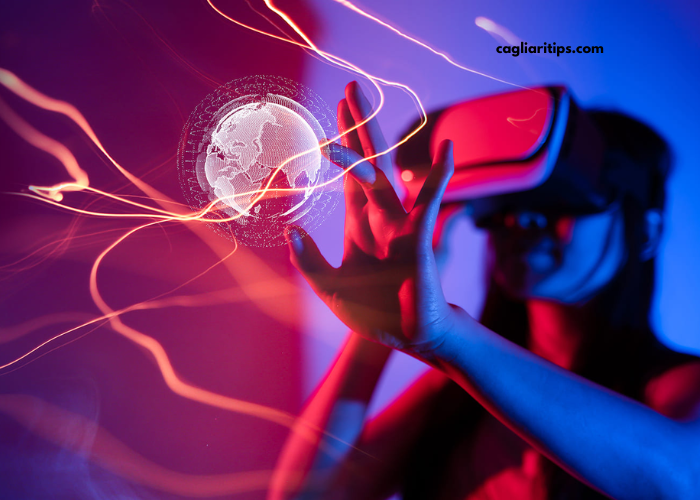Top Entertainment Trends You Must Know in 2025
The entertainment industry has always been a dynamic space, constantly evolving to match the pace of technology, consumer interests, and global events. As we approach 2025, it is crucial to understand the key trends shaping the future of entertainment. From digital transformation and virtual reality to the resurgence of live experiences and the integration of artificial intelligence, these trends are set to redefine how we consume, interact with, and create entertainment. In this article, we will explore the top entertainment trends to look out for in 2025.
1. The Rise of Artificial Intelligence in Entertainment
AI-Generated Content
Artificial intelligence (AI) is already making waves in various sectors, and the entertainment industry is no exception. In 2025, AI will become an integral part of content creation, offering new ways to produce music, films, TV shows, and video games. AI-driven tools are enabling creators to generate realistic visuals, music compositions, and even entire scripts. This technology allows for greater efficiency, creativity, and cost-effectiveness, resulting in faster production timelines and more engaging content.
AI’s role extends beyond creation—it’s also being used to enhance personalization. Platforms like Netflix and Spotify already leverage AI algorithms to recommend content based on user preferences, and by 2025, these recommendations will become even more precise and tailored.
Virtual Reality and AI Integration
One of the most exciting developments on the horizon is the integration of AI with virtual reality (VR). By 2025, we can expect more immersive experiences where AI tailors virtual environments and interactions in real-time, creating an almost limitless array of experiences for users.
2. The Evolution of Streaming Platforms
The Era of Niche Streaming Services
While Netflix, Disney+, and Amazon Prime dominate the streaming landscape today, niche streaming platforms are gaining traction in 2025. These services cater to specific genres, cultures, or interests, offering specialized content that larger platforms might overlook. For example, platforms focusing on indie films, Asian cinema, or regional content will provide a more personalized experience for viewers.
The growth of niche streaming services signals a shift in consumer behavior. Rather than relying on a few big-name platforms, consumers are diversifying their subscriptions to access a broader range of content that resonates with their unique tastes.
Interactive and Immersive Streaming
Another major development in streaming is the incorporation of interactive and immersive features. With the growing popularity of interactive shows like Bandersnatch on Netflix and live concerts on YouTube, platforms are increasingly experimenting with new ways to engage audiences. In 2025, we can expect to see more interactive TV shows, where viewers can choose the direction of the plot or influence outcomes in real-time.
Furthermore, VR and AR streaming will provide users with more immersive viewing experiences. Imagine watching a sports event and being able to choose the best angle for each play or feeling as though you’re in the middle of the action.
3. The Continued Growth of Esports
Esports as a Mainstream Sport
Esports has already become a billion-dollar industry, and by 2025, it will be fully integrated into mainstream entertainment. With major brands, networks, and even traditional sports leagues investing in esports, it’s clear that competitive gaming is here to stay. The popularity of games like League of Legends, Fortnite, and Valorant is only growing, with more high-profile tournaments, sponsorships, and viewerships than ever before.
The rise of esports as a spectator sport is accompanied by the growth of gaming influencers and content creators on platforms like Twitch, YouTube, and TikTok. These influencers are not just gaming enthusiasts; they are shaping the culture, creating communities, and driving the narrative of the gaming world.
Virtual Sports
In addition to traditional esports, the concept of virtual sports is gaining momentum. These sports are simulated in real-time with AI-generated athletes competing in games like soccer, basketball, and racing. By 2025, virtual sports will become a significant part of the entertainment ecosystem, attracting viewers who want the excitement of competition without the physical limitations of real-world sports.
4. The Resurgence of Live Experiences
Hybrid Events and Concerts
Live events have always been a major part of the entertainment world, and with the rise of virtual reality and livestreaming, the idea of hybrid events is quickly becoming mainstream. By 2025, concerts, theater performances, and even sporting events will blend physical and digital experiences, allowing people to attend in person or join remotely.
This hybrid model will extend beyond entertainment to include conferences, business events, and education. With advancements in VR, attendees can feel as though they are in the front row of a concert, while artists can perform for global audiences in a truly immersive way.
Immersive Theater and Experiences
In 2025, immersive theater will continue to captivate audiences. These experiences go beyond traditional theater by allowing the audience to become part of the performance. With the integration of VR and AR, these experiences will become even more interactive, engaging participants in ways that were never possible before.
5. The Growth of Sustainable Entertainment
Eco-Friendly Productions
As the world becomes more environmentally conscious, the entertainment industry is following suit. By 2025, sustainability will be a key focus for studios, production houses, and event organizers. We can expect to see a rise in eco-friendly film and TV production methods, including the use of green technologies, sustainable materials, and reduced carbon footprints.
For example, outdoor shoots and set designs will increasingly make use of eco-friendly practices, while digital production methods, like virtual sets and CGI, will reduce the need for physical materials. In addition, streaming platforms will begin to address the environmental impact of their operations, implementing measures to reduce energy consumption.
Green Content and Storytelling
Sustainability will also influence the types of stories told in the entertainment industry. More filmmakers and content creators will explore themes of environmental conservation, climate change, and sustainability, reflecting the growing concern for the planet. These narratives will not only entertain but also raise awareness and inspire action.
6. The Integration of Virtual Reality and Augmented Reality
Virtual Reality Experiences
Virtual reality (VR) is poised to be one of the most transformative trends in entertainment by 2025. VR will allow users to immerse themselves in entirely new worlds, experiencing entertainment in ways that were once unimaginable. Whether it’s watching a movie, playing a video game, or attending a live event, VR will create experiences that feel incredibly real.
By 2025, VR headsets will become more affordable and accessible to the average consumer, making it possible for more people to experience high-quality, immersive content. VR gaming will also continue to grow, with developers pushing the boundaries of what’s possible in virtual worlds.
Augmented Reality in Entertainment
While VR is about fully immersive experiences, augmented reality (AR) overlays digital elements onto the real world. In 2025, we can expect to see AR becoming an essential tool in entertainment, particularly in live events and interactive media. For instance, AR could be used to enhance live theater performances, sports events, or even theme park attractions.
The growth of AR-enabled smartphones and wearables will allow people to interact with entertainment content in a more immersive and engaging way, creating new forms of interactive storytelling and experiences.
7. Social Media’s Influence on Entertainment
Social Media and Influencer Culture
Social media will continue to play a crucial role in shaping the entertainment landscape. In 2025, platforms like Instagram, TikTok, and YouTube will remain central to how audiences discover, share, and engage with entertainment content. Influencers and content creators will continue to drive trends and shape cultural narratives, often blurring the lines between traditional celebrity and social media stardom.
Brands and entertainment companies will increasingly partner with influencers to promote movies, TV shows, video games, and other forms of media, leveraging their massive followings to reach targeted audiences in authentic and engaging ways.
Social Entertainment Platforms
As social media evolves, we are likely to see the rise of new social entertainment platforms designed specifically for entertainment consumption. These platforms will allow users to watch shows, play games, and interact with content together in real-time, creating a more communal and participatory entertainment experience.
Conclusion
The entertainment industry in 2025 will be an exciting blend of technology, creativity, and cultural evolution. From AI-driven content creation to the rise of immersive VR experiences, the way we consume and interact with entertainment will continue to transform at a rapid pace. As these trends take shape, consumers can look forward to a more personalized, immersive, and sustainable entertainment ecosystem. For those in the entertainment industry, staying ahead of these trends will be key to remaining relevant and successful in this ever-changing landscape.



